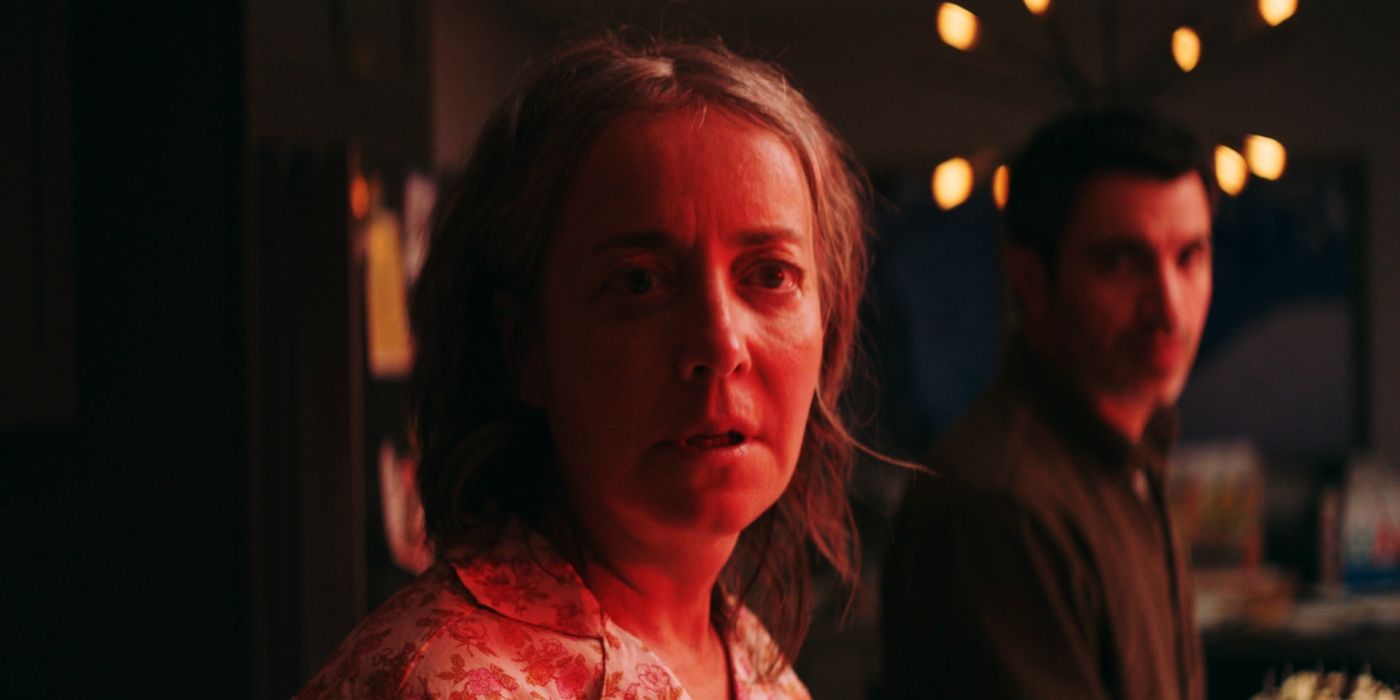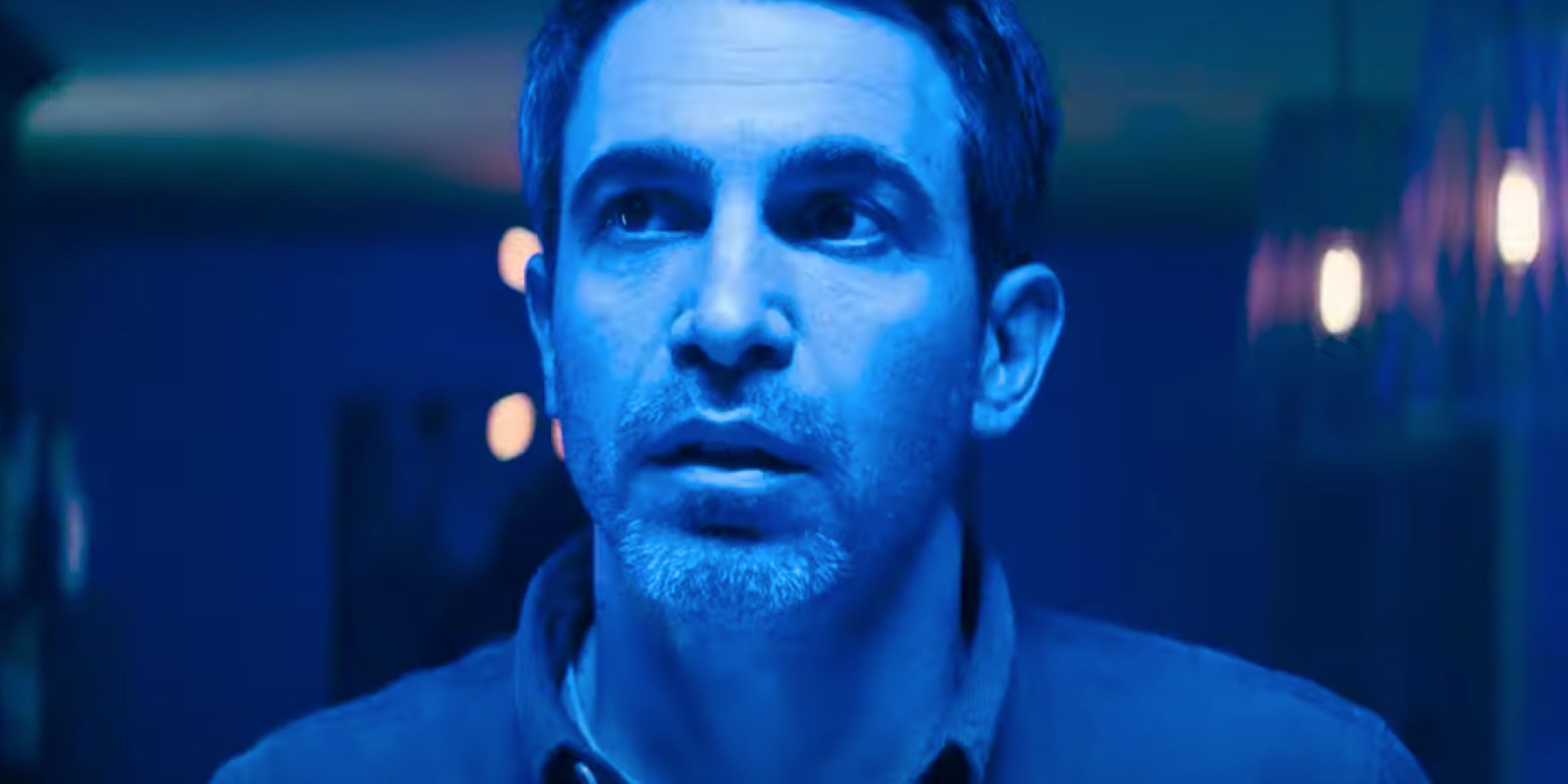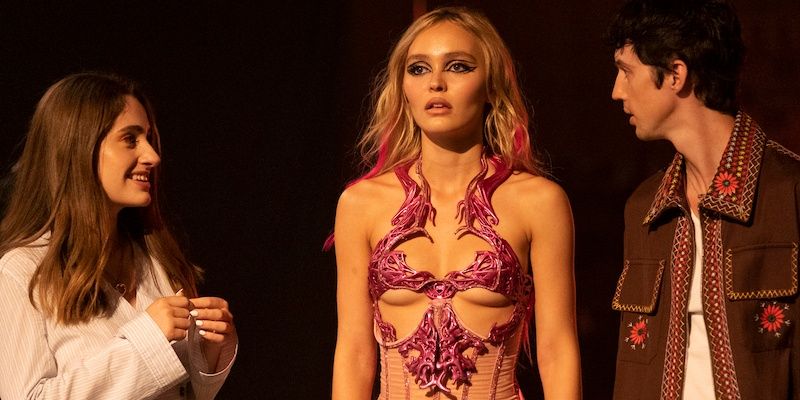If you’ve heard Amy Seimetz‘s name recently, it was probably in connection with a show on which most of her creative contributions were erased. She was originally slated to direct multiple episodes of A24’s The Idol, which tells the story of a troubled pop star (Lily Rose-Depp) who falls under the sway of a domineering mentor (Abel Tesfaye). In fact, Seimetz had nearly finished the shoot before a controversial creative shake-up in 2022, which included her high-profile departure from the show. Astonishingly, all of her scenes were re-shot, and scripts that she had had a hand in shaping were rewritten. In March, a revealing behind-the-scenes look at the creative upheaval in Rolling Stone quoted several anonymous sources inside the production who suggested that the rewrites, headed by producer Sam Levinson (Euphoria), had transformed the show into a misogynistic male power fantasy. When it finally premiered in June on HBO and Max, those rumors were widely perceived to have been confirmed.
We’ll likely never see what Seimetz’s version of The Idol was like. That makes this a perfect time to instead revisit her most recent film, the cosmic-horror comedy of manners She Dies Tomorrow. One of the best films of 2020, it’s available to stream on Hulu and is worth checking out if you missed it.
While many films skipped a theatrical release during the first year of quarantine, She Dies Tomorrow charted its own unique path and screened for a week at drive-in theaters before heading to streaming. Anyone who drove out to the desert to catch one of these screenings was able to see why this plan made sense. The story revolves around the aftermath of its own fateful trip to the desert and seems to take place at the borderline between an encroaching suburb and a desolate wilderness. It’s the perfect movie for drive-ins.
What Is Amy Seimetz’s ‘She Dies Tomorrow’ About?
The movie opens with a cryptic flashback to a romantic getaway gone wrong. Amy (Kate Lyn Sheil) and Craig (Kentucky Audler), a relatively new couple, have traveled out to his brother’s vacation home, where Craig appears to have suffered some kind of emotional breakdown. Amy then wakes up, as if from a nightmare, back home and alone. It’s not revealed precisely what happened on her trip, but she has brought back with her a mysterious infection. Though it’s clearly something supernatural, it’s not as easy to define as the typical horror movie viruses that turn people into zombies or vampires, or at least melt their internal organs into goo. Instead, Amy has been infected with an idea: she is certain that she is going to die tomorrow.
Amy reaches out to her friend Jane (Jane Adams, who appears in The Idol) for comfort, and we learn that Amy is a recovering alcoholic whom Jane is used to being disappointed by. Amy explains to her friend that she’s going to die, but she can’t or won’t explain why she feels so sure. Jane herself is a socially reclusive artist with her own little things to worry about — her sister-in-law is having a birthday party, and she needs to figure out how to talk her way out of going. She tries to brush off her encounter with Amy, explaining it to herself as a relapse. But soon after leaving, Jane herself becomes overwhelmed with the certainty that she’s also going to die. It’s spreading.
In a panic, Jane turns up at the birthday party after all, in her pajamas. When we see Jane interact with her brother (Chris Messina) and his wife (Katie Aselton), we realize that what Amy is to Jane, Jane is to them: a basketcase whom it is their obligation to care about. Jane’s paranoia infects the other partygoers, who then spread it to the rest of the world through a similar pattern of seeking out comfort and company. The contagion travels through humanity’s networks of care.
‘She Dies Tomorrow’ Is a Visually Stunning and Genre-Bending Movie
The movie has some of the trappings of a horror film. When the infection takes over someone’s mind, they first hallucinate mysterious flashing lights and hear ghostly human whispers. But other than that, it isn’t out to scare you. It’s much closer in spirit to last-night-on-earth dramedies like Lorene Scafaria‘s Seeking a Friend for the End of the World. But isn’t quite like any of those movies, which are structured around their characters spending their last few moments finally finding love, or at least realizing what really matters. This movie doesn’t offer any easy catharsis. The characters in She Dies Tomorrow, facing the end, are able to identify the social niceties and moral obligations they’re ready to discard. And yet, nothing particularly wonderful arises to take their place. A lot of the humor comes from watching people anxiously cycle through a frenzy of different concepts for their final moments, never quite able to comfortably decide on anything.
If unsentimental, this is still a persistently warm movie. Briskly paced, it observes its characters with precision and affection, able to reveal a lot about their relationships with the people they (try to) care about, even as they’re all living through a moment of rapid transition. The movie also looks great. Interiors and exteriors — the life that will be left behind and the state of nature that will eventually reclaim the earth — both look pleasant and inviting. Even the inserts of computer screens have a certain sumptuousness. If She Dies Tomorrow is correct about the way it all ends, well, there could be worse ways to go.
‘She Dies Tomorrow’ Reflects the Richness of “The Female Perspective”
Two quotes have shaped the public perception of The Idol. They’re both quotes from anonymous sources close to the show, remarking on its production turmoil. In the first, from 2022, Tesfaye, who is also the show’s co-creator, was said by a source to have removed Seimetz from the project because he thought she was bringing too much of a “female perspective.” However, Tesfaye never commented on this further, so we have to guess what he might have meant. In the 2023 Rolling Stone article, the creative takeover by Tesfaye and Levinson, which included the addition of several explicit sex scenes between Tesfaye and Depp, was described by a source as transforming the show “from satire to the thing it was satirizing.”
It’s tempting to try and imagine what Amy Seimetz’s version of The Idol could have been. With quotes like this swirling around, it would be understandably easy to start with the idea that there is only one “female perspective” and one “male perspective” and that they’re at odds with each other. One satirizes, and the other is the thing satirized. So, Seimetz’s The Idol must have somehow been the perfect opposite of this one. (This already presumes that Seimetz’s influence over the material was fully erased, which may not be true.)
‘She Dies Tomorrow’ Offers a Glimpse at Seimetz’s Vision for ‘The Idol’
It’s possible that Seimetz’s The Idol really went hard at the men who control the music industry, in a way that made her male collaborators flinch. But that’s not the only possibility. The male characters in She Dies Tomorrow are uniformly nice. They’re helpful and relatively uncomplicated. It’s the female characters who are complex, difficult, and often burdensome. But, they’re also more interesting. Even though She Dies Tomorrow is about an infection that no one is immune to, the title indicates that this is a story about women, without making it easy to say how or why. It’s not clear which character the “she” of the title refers to. It could refer to all of them at once.
Seimetz’s “female perspective” has often seemed to express itself as her just having more to say about women — even if much of it is raw and unpleasant. She’s been pretty open and self-aware about this. In an interview with GQ that touched upon TV’s glut of anti-hero male leads and their long-suffering female partners, she asked “Is there any hot mess show about a woman who is a recovering alcoholic, and she has some dude character who just takes care of her?”
Meanwhile, talk about the “male perspective” injected into the finished product of The Idol has focused on the sex scenes between Jocelyn and Tedros, the characters played by Tesfaye and Depp. He chokes her, blindfolds her, and issues her commands, all for his own pleasure. Even Jocelyn’s enthusiastic participation reads as part of a pornographic male fantasy.
However, there’s another scene from the pilot episode worth thinking about. Pop star Jocelyn first meets Tedros at a club in the middle of a crisis, and even though he’s creepy, she invites him to her mansion, out of a desperate belief that he can help her climb out of a creative rut. Tedros arrives, a mysterious weirdo wearing a trademark spooky cape. However, after he briefly asks to use her bathroom, we get the chance to spy on him as he goofily rehearses his mysterious act in the mirror. This scene clearly exists to “satirize” Tedros, to puncture the mystique he’s trying to cultivate. But, it also takes us out of Jocelyn’s perspective — she’s enthralled by him — and puts us in the position of knowing more than her, while making us Tedros’ accomplice. Sometimes, perspective is just a question of who we follow to the bathroom.
Stay connected with us on social media platform for instant update click here to join our Twitter, & Facebook
We are now on Telegram. Click here to join our channel (@TechiUpdate) and stay updated with the latest Technology headlines.
For all the latest TV News Click Here




